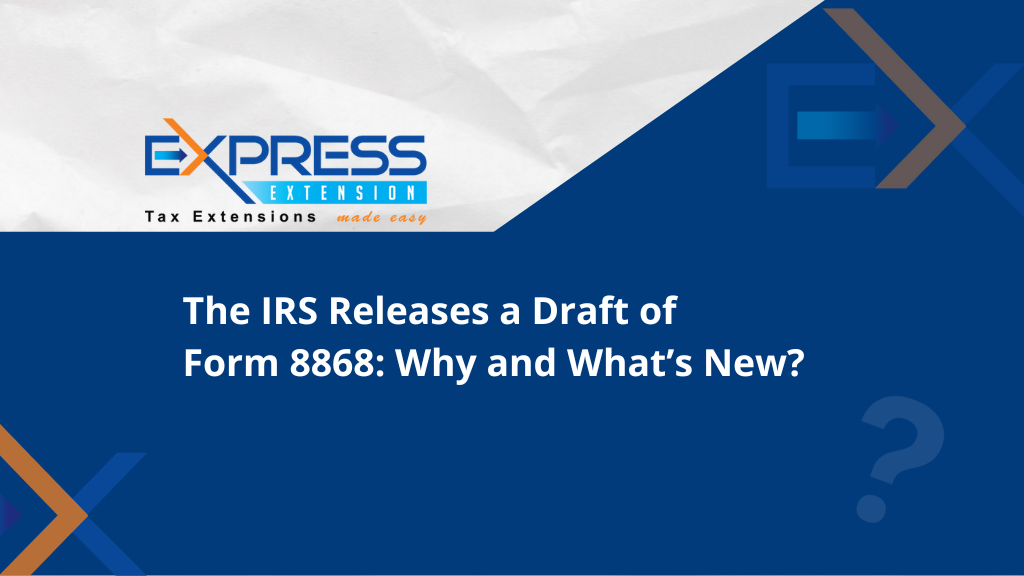The IRS Releases a Draft of Form 8868: Why and What’s New?
reading time: 8 minute(s)

The most recent release from the IRS introduces a fresh draft of Form 8868, the IRS Tax Extension form utilized by tax-exempt organizations seeking more time to file their yearly tax returns.
While these alterations are not set in stone, they offer an insightful preview into the anticipated updates and the potential transformation of the filing procedure for this form.
This blog delves into the essence of Form 8868, the expected modifications within this form, and how these adjustments might influence the filing approach for your organization.
What is Form 8868?
The 8868 is an extension form that tax-exempt organizations, also known as nonprofit organizations, can file to request an extension of up to 6 months from the IRS. This extension applies to all of the 990 series returns, with the exception of the smallest Form 990-N. Also referred to as the 990 e-postcard, this form is not currently eligible for any IRS extension.
This is an automatic extension, meaning that as long as the form is filed with accurate information and submitted to the IRS on or before the deadline, it will be accepted and the extension granted without any further reasoning. No ‘blanket requests’ are permitted. Nonprofits must file a new extension for any and all forms that they need an extension for.
This is a simple extension form that only requires basic information for approval. So – why would the IRS need to update this form?
Draft Version of Form 8868: Notable Updates
The new updates to Form 8868 involve Form 5330. Form 5330 is the Return of Excise Taxes Related to Employee Benefit Plans. Nonprofits can file this form to request a determination letter to the IRS for the initial qualification of a defined benefit or a defined contribution plan and the exempt status of any related trust.
So – what does this actually mean? When an employer or a third-party administrator makes an error while managing a benefits plan, they are required to report this and applicable excise taxes to the IRS.
The new draft version of Form 8868 includes the option to extend Form 5330 for an (individual) or (other than individual). If the extension is being filed for Form 5330, they must also enter the ‘Plan Name’, “Plan Number, and the ‘Plan Year Ending’ date.
The next notable update is that Form 8868 will now have three parts. Including,
- Part I: Identification
- Part II: Exempt Organizations
- Part III: 5330 Filers
To check out the IRS draft version of Form 8868, click here.
To check out the IRS draft version of Form 8868 instructions, click here.
The ExpressExtension team will keep you posted on the changes coming to Form 8868. In the meantime, you can easily complete and transmit your organization’s 8868 extension with our streamlined application

Leave a Comment